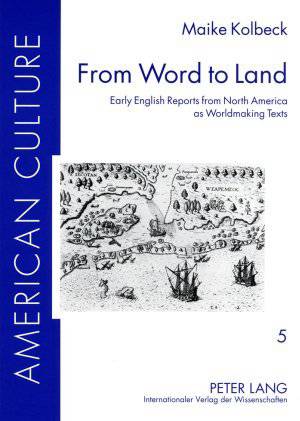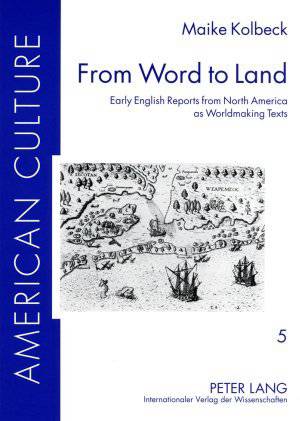
- Afhalen na 1 uur in een winkel met voorraad
- Gratis thuislevering in België vanaf € 30
- Ruim aanbod met 7 miljoen producten
- Afhalen na 1 uur in een winkel met voorraad
- Gratis thuislevering in België vanaf € 30
- Ruim aanbod met 7 miljoen producten
Zoeken
From Word to Land
Early English Reports from North America as Worldmaking Texts
Maike Bettina Kolbeck
€ 58,95
+ 117 punten
Omschrijving
Early English reports from North America were principal sources of knowledge for their European audience. Nevertheless, they also share central features with fictional narratives. The author analyzes how, and to what effect, «the word became land» and how language functioned in these narratives to create knowledge, history, and thus reality. Drawing on Nelson Goodman, Hayden White, and Jeffrey Kittay, this book surveys almost 50 narratives ranging geographically from Newfoundland to South Carolina and temporally from 1576 to 1700. Close readings focusing on their narrative and descriptive strategies reveal a surprising uniformity across time and space which sought to assert by rhetoric what often failed in reality.
Specificaties
Betrokkenen
- Auteur(s):
- Uitgeverij:
Inhoud
- Aantal bladzijden:
- 204
- Taal:
- Engels
- Reeks:
- Reeksnummer:
- nr. 5
Eigenschappen
- Productcode (EAN):
- 9783631573648
- Verschijningsdatum:
- 23/11/2007
- Uitvoering:
- Paperback
- Formaat:
- Trade paperback (VS)
- Afmetingen:
- 148 mm x 210 mm
- Gewicht:
- 289 g

Alleen bij Standaard Boekhandel
+ 117 punten op je klantenkaart van Standaard Boekhandel
Beoordelingen
We publiceren alleen reviews die voldoen aan de voorwaarden voor reviews. Bekijk onze voorwaarden voor reviews.











